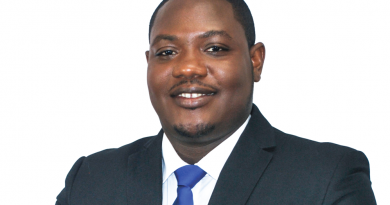Old Road fisherman evacuated to Guadeloupe hospital for treatment of ‘the bends;’ family thanks Ayre Foundation for help
An Old Road fisherman is now in Guadeloupe receiving treatment for decompression sickness – or “the bends” – at the Centre Hospitalier Universitaire (University Hospital Center).
Reports say that 53-year-old Clive Pelle is undergoing hyperbaric treatment after being medically evacuated to the neighbouring island by CalvinAir Helicopters.
According to Pelle’s wife, Skeeter, her husband returned from sea last Tuesday evening, February 28, complaining of pains and numbness in his left shoulder.
However, when the symptoms – which typically include fatigue, joint and muscle aches or pain, clouded thinking, and numbness –began affecting his hands and legs, he immediately sought attention at the Sir Lester Bird Medical Centre.
Doctors there diagnosed him with decompression sickness, which results from inadequate reduction in air pressure following exposure to increased pressure.
As a result, they made a request for Pelle’s urgent evacuation to Guadeloupe last Thursday, March 2, since the sooner the treatment of an injury begins, the better the chances of a patient’s full recovery.
The helicopter airlift was quickly mobilized and made the lifesaving half-hour flight to Guadeloupe that same afternoon.
According to a Monday, March 6, medical update, Pelle is now able to walk a little on his own, but he has a few more days of treatment before he can return home. He has had to be placed in a hyperbaric chamber.
According to Pelle’s son, Richie, the family was unsure of how his father’s travel and treatment would have been facilitated, and he expressed thanks to the Calvin Ayre Foundation for its assistance in their time of need.
When nitrogen bubbles enter the nervous system, serious complications can occur; and if the symptoms go untreated, paralysis or even death can occur in persons affected by “the bends.”
To prevent decompression sickness, most divers make a safety stop for a few minutes before ascending to the surface; this is to ensure that the body has time to adjust to the change in pressure.




